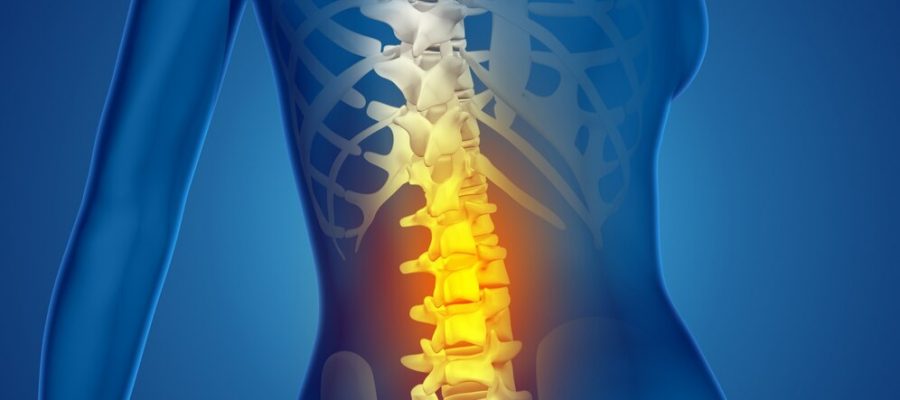
Slipped Disc
Slipped disc, also known as herniated disc, is a common condition that affects many people in Singapore. This often misunderstood and underestimated condition can cause significant pain and discomfort, making it important for us to understand what it is and how it can be treated. In this article, we will dive into the world of slipped disc – from its causes to its symptoms and treatment options.
What is a Slipped Disc?
Slipped disc, also known as herniated disc, is a condition where the soft cushion-like discs between our vertebrae in the spine bulge or rupture. These intervertebral discs act as shock absorbers for our spine and allow for flexibility and movement. When one of these discs becomes damaged, it can cause pain and discomfort in different areas of the body.
Anatomy of our spine
Our spine consists of 33 vertebrae stacked on top of each other with discs in between them. These discs act as shock absorbers and help with our movements. However, when too much pressure is put on the spine, it can cause one or more of these discs to bulge out of its normal position. This is what we commonly refer to as a slipped disc.
When a disc slips out of place, it can compress nearby nerves, causing pain and discomfort. This condition is also known as a herniated disc. Depending on the location of the slipped disc, it can cause different symptoms in various parts of our body.
Types of Slipped Discs
There are different types of herniated discs depending on where they occur in our spine. The types of slipped discs includes:
- Lumbar Herniated Disc: This type affects the lower back area and can cause symptoms such as lower back pain, leg pain, and muscle weakness/numbness or tingling in the legs. It often requires physical therapy, pain management, or in severe cases, surgery.
- Cervical Herniated Disc: Occurring in the neck region, this type can result in neck pain, shoulder pain, and radiating pain or numbness in the arms. Treatment might include rest, physical therapy, or surgery, depending on the severity.
- Thoracic Herniated Disc: Found in the upper/middle back, this type is less common and can cause upper back pain, pain radiating around the chest, or numbness. Treatment options range from conservative management to surgical intervention.
Causes of Slipped Disc in Singapore
Several factors can contribute to the development of a slipped disc, with some being more common in Singapore:
- Poor posture and sedentary lifestyle – In today’s digital age, many of us spend long hours sitting at our desks or hunched over our phones, leading to poor posture and putting excessive strain on our spine.
- Age-related degeneration – As we age, the discs in our spine start to lose their water content and become less flexible, making them more prone to damage.
- Trauma or injury to the spine – Accidents or sports injuries that involve sudden impact or twisting movements can lead to a slipped disc.
Symptoms of Slipped Disc
The symptoms of a herniated disc may vary depending on its location in our spine. Generally, you may experience back pain that radiates down your legs if you have a lumbar herniated disc. A cervical herniated disc may cause neck pain with numbness or weakness in your arms, while a thoracic herniated disc can cause discomfort in the upper back and may also affect your chest and abdomen.
The symptoms of a slipped disc can vary depending on its location and severity. Some common signs to look out for include:
- Pain in the back, neck, or extremities – The pain may be dull or sharp and can worsen with certain movements or activities.
- Numbness or weakness in certain areas – Due to nerve compression, you may experience tingling, numbness, or weakness in your arms, legs, or other body parts.
- Difficulty in movement and daily activities – As the pain and discomfort intensify, you may find it challenging to perform tasks that involve bending, lifting, or twisting.
If you experience any of these symptoms, it is essential to seek medical attention for proper diagnosis and treatment.
Diagnosis of Slipped Disc
To diagnose a slipped disc, your doctor will conduct a physical examination to check for areas of tenderness and assess your range of motion. They may also recommend imaging tests such as X-rays, MRI, or CT scans to get a clearer picture of your spine’s condition and identify any abnormalities.
These imaging tests can also help determine the extent of the slipped disc and its impact on nearby nerves. This information is crucial in deciding the best course of treatment for your condition.
Treatment Options for Slipped Disc in Singapore
The treatment for a slipped disc will depend on several factors, including the severity of your symptoms and the location of the herniation. In most cases, doctors will recommend conservative treatments such as rest, physical therapy, and medication to manage pain and promote healing.
If these methods do not provide relief or if your condition is severe, surgery may be required. The type of surgery recommended will depend on various factors, including the location of the slipped disc and its impact on nearby nerves.
Some common surgical procedures used to treat a slipped disc include:
- Discectomy: A procedure where a portion of the damaged or bulging disc is removed to relieve pressure on nearby nerves.
- Microsurgery: A minimally invasive procedure where a small incision is made, and a microscope is used to remove the damaged disc.
- Spinal fusion: This involves fusing two or more vertebrae together to stabilise the spine and prevent further damage.
Slipped Disc Surgery Cost in Singapore
Slipped disc surgery can cost around $10,682 to $13,843 (including GST). This does not include the hospital fees, anaesthetic fees, doctors’ attendance fees, medications, injections etc.
The actual cost of surgery for a slipped disc in Singapore will depend on several factors, including the type of surgery recommended, the complexity of your condition, and additional medical expenses (such as medication and post-surgery rehabilitation).
Please note that this is an estimated cost of the surgery and does not necessarily reflect the actual cost. The fees subject to the types of surgery, hospital fees, and other factors. You can refer to MOH’s fee benchmark for more information.
It is essential to consult with your doctor and have a thorough understanding of the treatment costs before making any decisions.
I have insurance, can I make a claim?
Singapore citizens and permanent residents may pay for a portion of their slipped disc surgery through Medisave. The amount claimable depends on the type of procedure and complexity of your condition.
Slipped disc surgery can be claimable through private insurance for some plans. However, the extent of coverage will vary depending on your insurance provider and plan. It is advisable to check with your insurance company before undergoing any treatment or surgery.
Prevention of Slipped Disc
While some risk factors for slipped discs may be beyond our control, there are steps we can take to reduce our chances of developing this condition. These include:
- Maintaining good posture – Make an effort to sit and stand with your back straight, and avoid slouching or hunching over for extended periods.
- Regular exercise – Engaging in physical activities that promote core strength and flexibility can help support your spine and reduce the risk of disc injuries.
- Practising safe lifting techniques – When lifting heavy objects, remember to bend your knees and use your leg muscles instead of straining your back.
- Avoiding prolonged sitting or standing – If you have a job that requires long hours of sitting or standing, take frequent breaks to stretch and move around.
- Quitting smoking – Smoking can affect the nutrients and oxygen supply to spinal discs, making them more susceptible to damage.
Conclusion
Slipped disc is a common condition that affects many people in Singapore. It occurs when one or more discs in our spine slip out of place, causing pain and discomfort. This condition can be caused by various factors such as poor posture, age-related degeneration, and trauma or injury to the spine.
It is important to recognize the symptoms of slipped discs and seek medical advice for proper diagnosis and treatment. Depending on the severity and location of the herniated disc, non-surgical or surgical options may be recommended.
Proper care during recovery and preventive measures like maintaining good posture and regular exercise can help reduce the risk of developing a slipped disc. By taking proactive steps towards our spinal health, we can prevent future episodes of pain and discomfort due to slipped discs. So let’s make an effort to keep our spines strong and healthy!
Please note that the provided content is for informational purposes only and should not replace professional medical advice.


